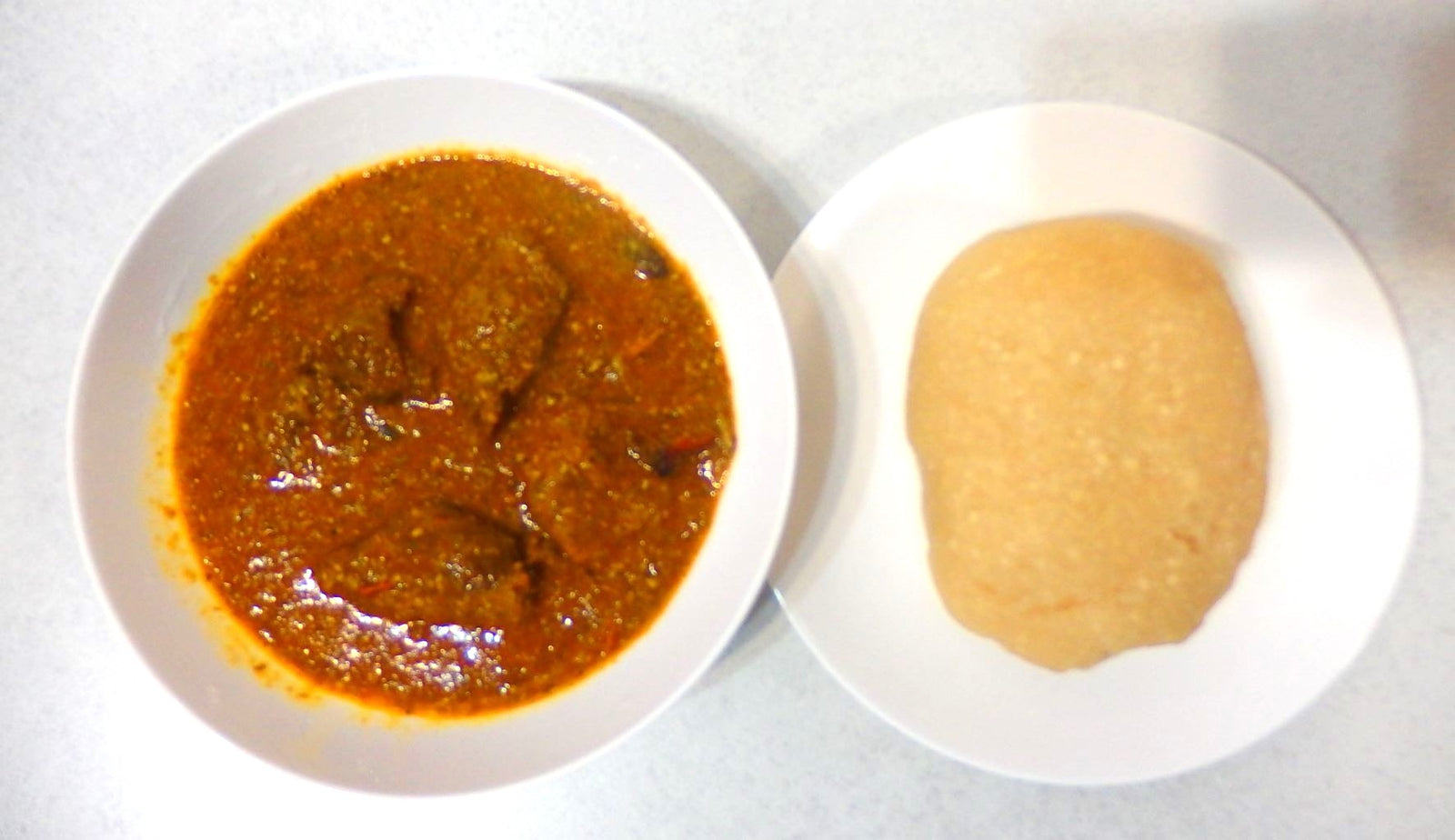** we only ship to AUS and NZ **

There are not many people who have not have heard of the Mediterranean Diet, which is a diet that is inspired and based on the eating habits of the Mediterranean countries of Italy, Greece, and Spain.
It is a well-researched diet proven for not only weight loss and longevity, but also in the management of existing chronic health conditions such as high cholesterol, high blood pressure and heart disease, cancer & dementia.
The staple foods eaten in the Mediterranean diet include vegetables, fruits, nuts, seeds, legumes, potatoes, whole grains, slices of bread, herbs, spices, fish, seafood, and extra virgin olive oil. Red meat is eaten sparingly.
When you substitute the extra virgin olive oil with either the use of small quantities of red palm oil or peanut oil, you may observe that the Mediterranean diet now looks like the high fibre and nutritious Traditional African Cultural Diet, especially before the regular consumption of large quantities of red meat was regarded as a sign of affluence, and where we started replacing many of our natural unrefined and mainly organic staple foods with highly processed, refined and high-caloric and low nutrition foods.
If you are struggling to remember what an authentic ‘’Traditional African Cultural Diet’’ looks like, just try to remember the type of foods that our parents and grand-parents grew, cooked, and ate, particularly in the rural areas.
Think about some of the foods you would have eaten as a young child growing up, at least before you migrated out as a ‘’Diasporean’’, and you either stopped eating these native staples for any number of reasons and replaced them with the readily available foods of your new home country. Highly processed fast foods anyone?
Depending on your origins from the Mother Land, your traditional African cultural diet would have comprised of many plant-based high fibre and nutrient-dense staples that would have included all varieties of leafy green vegetables, root tuber crops such as cassava, potatoes, yams, legumes including different types of beans and peas, and nuts and seeds of all kinds containing high levels of healthy Omega oils that would have either been cooked and eaten on its own as a meal, or ground up and used as a soup for your ‘’swallow’’, or made into a fermented condiment and flavour enhancer to add to your cooking. Don’t forget that grains such as corn, millet, sorghum, teff, fonio, native rice, wheat, etc. also constituted a very large percentage of our traditional African staple diet and are prepared in a myriad of ways.
Of course, no traditional African diet can be complete without our many brightly coloured tropical fruits, and the generous use of our native leaves, fruits, seeds, and roots that are used as spices, food condiments, and flavour enhancers and are now known to have many medicinal and health-boosting properties.
Back then, red meats were not used in the quantity that it is used these days; and backyard reared chickens and freshly caught fish and seafood comprised a larger part of our meals.
With the rise and prevalence of chronic health conditions such as diabetes, high cholesterol, high blood pressure, and increasingly various auto-immune and allergenic health conditions in both our African and Diaspora population due to change in our diets and the many stresses we live under, there is now a deliberate and determined shift and focus back to eating our own natural native foods.
It is now widely realized that the less processing and refinement that a food undergoes, the better they are for us as they can still retain their inherent nutritional benefits.
Many of these traditional African foods used to be a challenge to find in Australia, unless you were lucky to have a visiting relative coming from home or the limited range that used to be available in the shops.
For many years now these foods have made their way into Australia and many of them can now be bought at many of your African retail food outlets throughout Australia. In fact, many of these foods are now considered ’mainstream’ due to their easy availability is nationwide.
So, in a nutshell, eating a traditional African cultural diet, engaging in an active lifestyle as well as complying with your GP’s medical advice should pave the road to good health, and the management and control of many pre-existing chronic health conditions, as well as preventing these health conditions arising in the first place.
Comments will be approved before showing up.

Touba Coffee, Senegal's famous invigorating spiced coffee beverage using Grains of Selim (Djar, Guinea Pepper) and cloves and how to make it at home for your enjoyment. Enjoy hot or ice cold.
